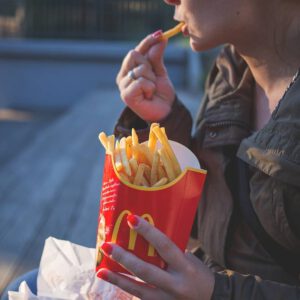Can You Sue A Chain Restaurant For A Slip And Fall?
Despite the wonderful invention of the drive-thru, millions of Americans opt to set foot in chain restaurants every day. The moment that they step out of their vehicle, they could be at risk of becoming the next slip and fall accident victim.
McDonalds Sued By Women Who Fell On Premises
On June 5th, 2019, a woman filed a lawsuit against McDonald’s, alleging that she sustained serious harm when she slipped and fell inside of one of their locations. She claims that when approaching the counter, her foot hit a slippery surface and she slammed into the tile floor, which cause disabling injuries to her right hand and arm.
She is seeking more than $50,000 in compensation for her medical bills and suffering.
This plaintiff is not alone. Recently, a federal judge announced that the discovery phase of a lawsuit filed against Outback Steakhouse will soon come to an end. In this case, the plaintiff claims that he slipped on grease near the kitchen and fell, causing him to break his knee.
Why are lawsuits against chain restaurants so common? Perhaps it is because many locations fail to remedy some of the most common causes of slip and fall accidents, such as:
- Wet Floors
- Loose Carpeting
- Broken Steps
- Cracked Sidewalks
- Potholes
How Quickly Must Slip And Fall Hazards Be Fixed?
This is a very difficult question to answer because, under premises liability, a property owner and its managers must regularly check to determine if hazards exist that could cause harm to visitors. Due to the fact that no two properties are exactly alike, what a court could consider reasonable will vary greatly from case to case.
For example, if an ice cream shop only has an entryway and a 10’ x 10’ room for patrons, a judge and jury will likely find that it is reasonable for employees and managers to check the space fairly frequently. However, on a 1000 acre farm, the chances that every inch of the property will be checked with any frequency is quite small.
That being said, most chain restaurants are fairly busy and employees, including servers, hosts, and bussers are constantly walking around helping customers. So it would likely be considered reasonable that a slip and fall hazard should have been discovered and addressed within a fairly short period of time.
How Do I Prove My Slip And Fall Case?
Proving that a restaurant knew or should have known about a slip and fall hazard can be incredibly difficult. There are steps that you can take after an accident to preserve evidence. This includes:
- Taking pictures: If you are able, take pictures of the area where you fell and the hazard that caused the fall. Also, take photos of your injuries, not only on the first day but over time as you heal.
- Collecting medical records: Get copies of any medical records that relate to your injury.
- Collecting witness contact information: If anyone saw your accident, collect their contact information. Their statement could be very important later on.
- Keeping copies of any other records: If you receive any other paperwork from insurance companies, property owners, or legal teams, keep a copy.
Using this evidence, along with the evidence that our legal team will collect from sources such a surveillance video, a legal argument will be created that we will use to carefully negotiate a settlement or fight for a successful verdict in court.
Does The Type Of Injury Matter In Slip And Fall Cases?
When it comes to civil lawsuits like slip and fall lawsuits, it does not matter what kind of injury you have sustained. If your injury has caused serious financial, physical, and emotional trauma, you have the right to seek compensation.
In the past, our legal team has helped clients who sustained:
- Spinal Injury
- Brain Injury
- Broken Bones
- Injuries That Resulted In Amputation
- Nerve Damage
Our attorneys understand how a serious injury can prevent you from living life the way you are used to. We will battle for the compensation that you need to get the medical help that you need.
The Business Owner Is Saying The Property Is A Rental – Who Do I Sue?
Knowing who to file a lawsuit against can be confusing in a premises liability case. When a rental agreement is in place, the agreement should name who is responsible for various tasks. For example, the rental agreement may state that the property owner is responsible for the removal of snow and ice during the winter months.
Our team will review any rental agreements in place and determine exactly who was at fault for your slip and fall accident.
I’m Being Told I Am At Fault For My Accident – Is This True?
While it is true that there are certain expectations made of visitors to a property, it’s likely that you are not at fault or are only partially at fault for your accident.
Let’s review the above McDonald’s case. The plaintiff alleges that she was approaching the counter when she slipped and fell on a wet spot. The defendants may argue that she should have been watching where she was going, however, isn’t it natural for McDonald’s visitors to be looking up at the menu which is always displayed high about the counter? It is unreasonable to expect patrons to both watch where they are stepping and read a menu at the same time. It simply isn’t possible.
How Much Is My Slip And Fall Claim Worth?
Without reviewing your case we are unable to determine how much your claim may be worth. Keep in mind that any compensation you obtain is intended to cover all medical bills, lost wages, physical pain and suffering, and emotional trauma.